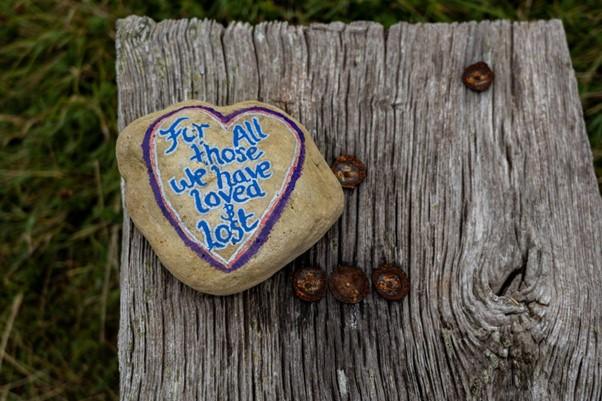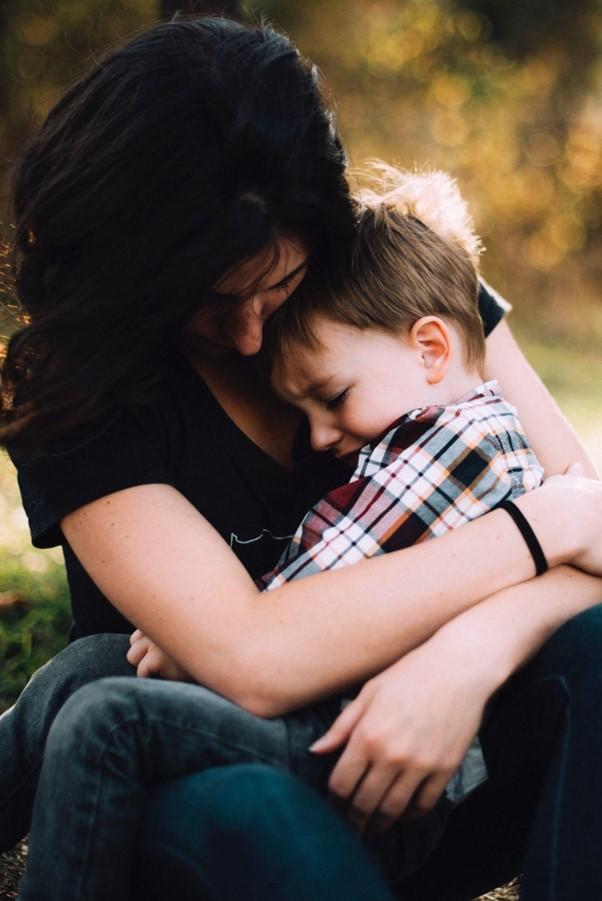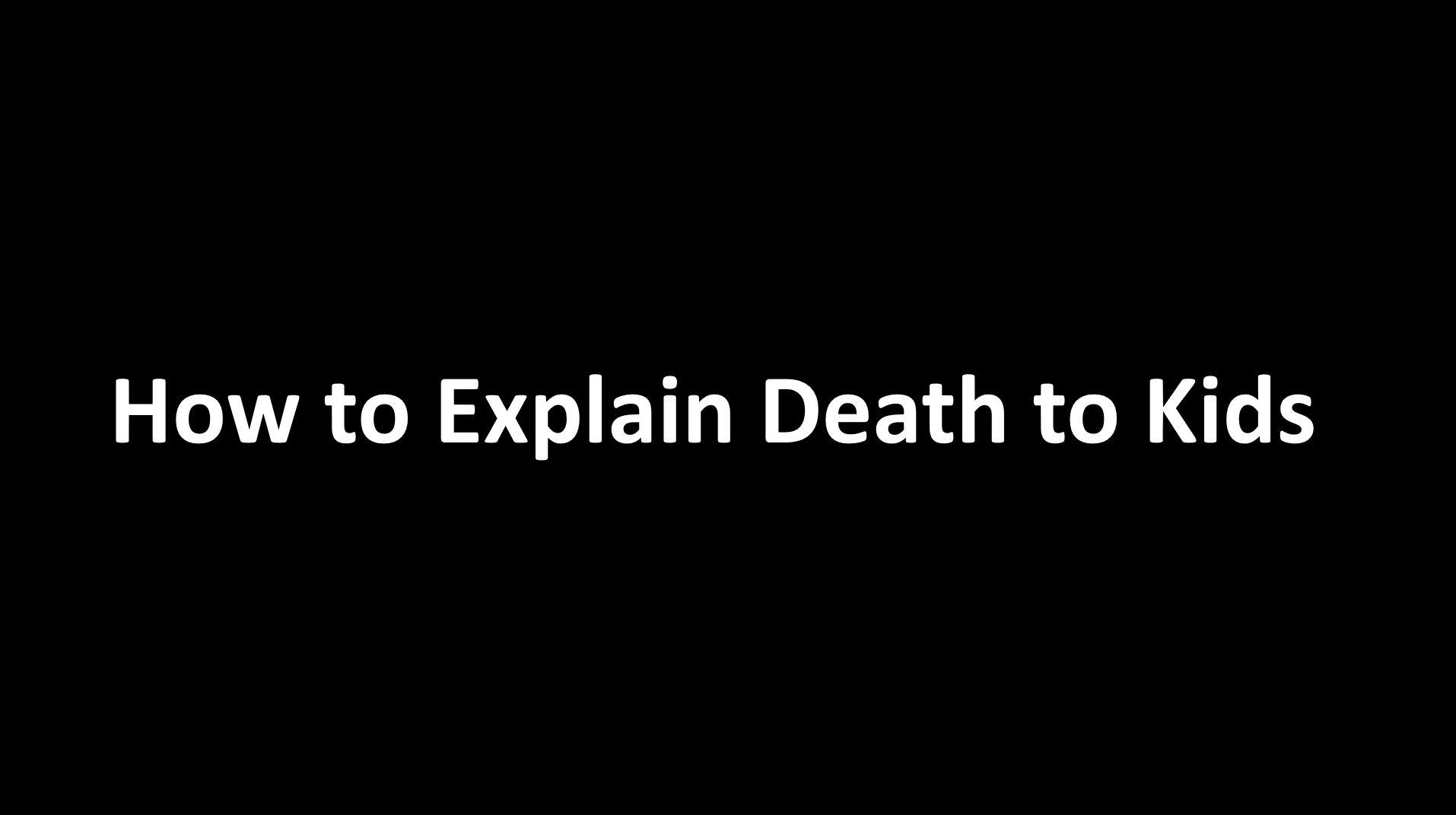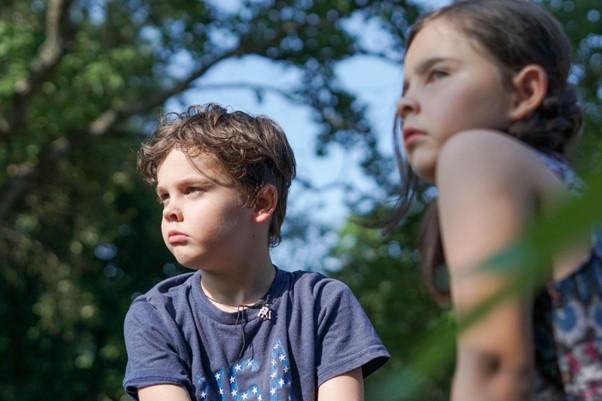There are only two certainties in life, death and taxes. Whilst this phrase is supposed to be humorous, it’s also sad. Unfortunately, there is always a moment that we have to say goodbye to our loved one. However, as adults, we have come to recognize death as a part of regular life. Kids, on the other hand, live in blissful ignorance. Whilst there is something quite comforting for the parents when it comes to kids being unaware of death, it’s also important that at some point the kids will have to learn about it. That’s what this article is going to focus on today. So let’s take a look at how to talk about death to kids
Related Reading:
- 14 Script Example to Tell Kids About Separation and Divorce
- How to Keep Your Child Safe: 8 Pedophile (Child Molester) Warning Signs
- Prevent Kids from Bullying: A Complete Guide for Young Schoolers’ Parents (5 to 8 years)
- Talking About Birds and Bees (sex) to Your Kids: Tips for Every Parent

Table of Contents
The Appropriate Age to Explain Death
As a parent, I fully understand we want to protect kids from the terrible situation like die, death, grief and funerals. Or, we think the are too young to understand. Maybe they got frightened and confused. Therefore, we are “sugar coat” a little bit. “He is treating in hospital and cannot be home soon”, “Grandpa take a long travel”, “Lucy became a star in the sky”.
There is never a right moment to be prepared to talk about death, even for adults. We always facing the situation to say goodbye to loved one too soon, for example, the sudden death of a family member, a family member with declining health, and many more.
One thing that is incredibly important is that you don’t actively hide death from your kids. I know we want to shield them but by doing so you are only prolonging an uncomfortable situation. It will come back the questions like “Did the doctor fix him?” “When grandpa will be back?” and “Why Lucy can be a star in the sky”.
If a death takes place within your family or friend group, then it’s important, to be honest with your child. Use simple and age appropriate words for explanation. For the young kids, use little insect or other animal as an example, as the example below from “nowhere special”.
Step 1 – Preparation Yourself First
As mentioned, the death talk is never easy, so it’s best to go in prepared. It’s ok to show your emotions to your kids, in fact, it’s a good thing. However, there is a limit. You may have to compose yourself before sitting down for the talk. Crying is one thing, but losing control and breaking down is really not ideal!
Here are a few tips that may help you prepare for the conversation:
- Write a simple fact list of what happened to the loved ones. For example, grandpa got very sick and when to the hospital, the doctor did everything they can to treat him etc. It can be used as supplement for your conversation with the kids.
- Allow yourself a minute to breathe slowly and deeply.
- Prepare a toy or comforter to illustrate or distract when the conversation gets too much
- Practice talk. Have the conversation alone, maybe looking into a mirror. Just getting the words out can be a challenge so practice is good. Concentrate on the next few minutes and how you want kids to hear about their loved one’s death.
- If there are two parents present then do it together
Step 2 – Start the Death Conversation
Here are some openings can help the conversation a little bit easier.
Asking children to come and sit down with you. While you are talking, try and speak as slowly as you can and pause between sentences.
“Can you come here and sit with me for a minute? We need to talk to you.”
“The doctor at the hospital has just called me.”

Step 3 – Explain the Happening Process
Do not jump on the feelings yet.
“Grandpa got more and more sick after he went to hospital, his body cannot handle the disease anymore, he has died.”
“The car hit grandpa suddenly and his body immediately stop working. His heart stopped and he could not breathe anymore, he has died.”
For younger children, you may need to repeat that the person has died and will not and cannot come back. For an older child, explain a bit more such as, “he had a tumor in his lungs that block the breathing path. He couldn’t get enough oxygen into his body. The doctors tried everything they can but can not fix the lung. I am very sorry, he has died. “
Talk slowly and honestly. To avoid any confusion, you must be very clear the person has died and avoid the soft words ‘gone to sleep’, ‘passed away’, ‘lost’ or ‘gone to the stars’. Young kids will be confused and think the person can come back.
After you have told the kids that grandpa has died, pause for a few seconds to allow them to take in what you have said. Wait until you feel the children are ready for more information.
Step 4 – Talk about the Feelings and Answer questions
Kids can have many different reactions to this news. Here are some respond examples:
| Kids Reaction | Parents Response |
|---|---|
| Crying or screaming | It is very sad, I feel the same |
| Denying like “I do not believe you” | I wish it is not true as well, it is difficult for me to accept as well. We will get through this together. |
| Quiet | Lots of hugs, they may not have immediate reaction to the news, but this doesn’t mean that there will be no reaction later on |
| Lots of questions such as “why he get the cancer?” “why doctors cannot save him” “Are you going to die one day as well” | Children often want to know what caused the death. It is important to repeat that it is bad luck that was not their fault. Other complicated answers such as what caused the cancer or why Coronavirus is spread, seeking for an age appropriate information. Highlight to them the importance of healthy lifestyle, sports, eating, sleeping. |

While Talk about Death to Kids
1) Be honest
I’m going to assume that you are talk about death to kids because you are in one of three situations:
- You have lost a loved one and need to explain it to your kid
- You have a family member or a friend who is terminally ill
- You feel like your child is ready for the truth about life and death
Whichever category you fall into the conversation will be slightly different but the message is the same. Honest is the first thing, to be open and honest about the situation and your emotions. Showing and verbalizing your own pain sets a good example for your kids. Explain to your kids that feeling sad, angry, confused, and crying are all normal and healthy reactions during this time.
2) Listen and comfort
This one is especially important if you are telling a child that they have lost a loved one. Don’t just dump and dash! Sit and talk for as long as it takes. Explain things clearly and just be there. Even if your kid doesn’t want to talk much after, it’s better to sit in silence together than it is to do so alone.
3) Answer every single question asked
While talk to kids about death, they may ask hundreds of questions. Not all of them you will have an exact answer to. But you need to do your best to answer every question to the best of your abilities. Even if the answer is, I don’t know. Referring to the first entry for this section, honesty is the best policy.
Talking about What happens the Next
1) The funeral or other memorial
Depending on the deceased person’s beliefs, you may have a funeral or some kind of memorial. If the kids need to attend the funeral, explain the purpose upfront. It is an event for friends and family to come together to say goodbye to the person who has died, say thank you for the family and friends’ support. Tell them what they will see, probably many people will cry, hug, and offering each other support.
If the funeral will have an open coffin, explain to kids what it is and what they will see and the burial process. In case the body will be cremated, reassure you kid that it is not painful for a dead person. If your kids does not want to attend the funeral, do not force them. Hug them and tell them it is OK to feel uncomfortable. After talking, do a bit fun activities such as play a game or enjoy a dessert.
If your kids decided to go to the funeral, have supplies, especially when they are young. Don’t be afraid to let your child see that you are sad. Hiding your emotions from your kids can lead to them thinking that their emotions are wrong. Some kids will ask a lot of questions at a funeral, don’t silence them. Answer any questions that your child may have.
One other good tip for this type of situation is to give the child a job. Maybe get your child to pick out some songs to play at the funeral or have your child pick out some favorite photos of the recently deceased. This way your child feels included and useful. Here’s an article with a more in-depth look at discussing funerals with your kid.

2) The 5 stages of grief
Talk about death, the 5 stages of grief also apply to kids. Denial, anger, bargaining, depression, and acceptance. While everybody shows grief in different ways, most of the time the five stages are present together or separate. So explain to your kids and also discuss about which stage you are, it may help them as they may even be able to spot these stages within themselves.

3) Behavioral changes
Once you have talk about death to your kids, you may notice some behavioral changes. Your child may become a little reclusive or maybe even a little aggressive or agitated. The most important thing is that you are there for them, whether it’s good or bad. Just like how adults greave in different ways, kids also greave in different ways.
If you notice that these behavioral changes last a long time or that they are fairly extreme, then it may be a good idea to seek professional mental help as your child may be struggling to comprehend things.
Keeping the Memory Alive
“You die twice, once when you die and then again when somebody mentions your name for the last time.” It’s quite a profound quote, and it’s very true. So, if you are talking to your child about death and loss then you’ll want to make it very clear to the child that when somebody dies it’s important not to forget about them.
This sounds obvious, but it happens. Just think about it for a minute. Your great great grandfather, what was his name? What was his job? What were his hobbies? Most of you reading this will have a hard time answering those three seemingly simple questions. So, when somebody does die, talk about them, share stories, and encourage that behavior in your kids too.
There are countless religions and cultures discuss about death. Particularly, Mexican traditions view death as a fresh start. Conversations between family members are open, and stories about the deceased are frequently shared. The Day of the Dead commemorates, honors, and celebrates those who have died. Mexicans across the country take to the streets in joyful song and dance, leaving offerings at cemeteries for the deceased. Some people even sleep in their graves at night. The movie Coco made me cry and laugh in the same time.
Final Thoughts from Pragmatic Lifestyle
To accept death of loved ones is a long and painful process for most people. Talk about death to kids is not easy as well. But it’s slightly less scary when you don’t feel so alone. Difficult times are significantly easier if you tackle them as a family.
As a parent, you know your child better than anyone else, so I’m sure you will do what is right for your child. If you found this article helpful, then you may like this one about ways to encourage a toddler to start speaking.
About me
Hi, there. I am Lin. Together with my husband and two kids, we live in the beautiful Netherlands in Europe. I am dedicated to self-development, creating quality time for the whole family, and fully supporting kids with their potentials and possibilities with all I have learned from engineering, MBA, and 10+ years of working experience in the energy sector.




4 Comments
Comments are closed.